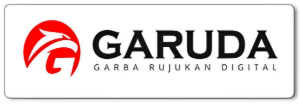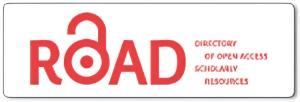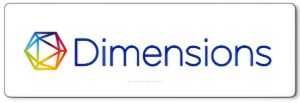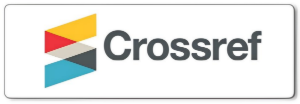PUBLICATION ETHICS
- Determining the name of the journal, the scope of science, the timeline, and the accreditation.
- Determining the membership of the editorial board.
- Defining the relationship between publishers, editors, peer review, and other parties in the contract.
- Appreciating the confidentiality of the contributing researchers, author, editor, and peer review.
- Applying the norms and regulations regarding intellectual property rights, especially on copyrights.
- Conducting policy reviews on the journals and presenting them to the authors, editorial board, peer reviewers, and readers.
- Making behavior code guidelines for editors and peer reviewers.
- Publishing journals on a regular basis.
- Ensuring the availability of resources for sustainable journal publishing.
- Establishing cooperation and marketing networks.
- Preparing for licensing and other legal aspects.
Editor Code Ethics
- Improving the quality of publications.
- Ensuring the process maintains the quality of published papers.
- Leading the freedom in delivering opinions.
- Maintaining the integrity of the author's academic track record.
- Conveying corrections, clarifications, withdrawals, and apologies if necessary.
- Owning the responsibility for styling and formatting the paper, while the contents and any statements in the paper are the responsibility of the authors.
- Assessing policies and attitudes of the published journal from the author and peer reviewers to increase responsibility and minimize errors.
- Having an open-minded personality in accepting new opinions or views of others that differ from their own.
- Prohibiting the defense of personal opinions, those of the author, or third parties, which may lead to false decisions.
- Encouraging authors to make improvements to their papers until they are worthy of publication.
Peer Review Code Ethics
- Receiving the task from the editors to review papers and submit reviews to determine their feasibility for publication.
- Reviewing papers in a timely manner, adhering to the style guide based on scientific principles (data collection methods, legality of the author, conclusions, etc.).
- Reviewing papers that have been corrected in accordance with established standards.
- Encouraging authors to improve their papers by providing feedback, suggestions, and recommendations.
- Maintaining author privacy by safeguarding the results of corrections, suggestions, and recommendations received by the author.
- Reviewers must not review papers involving themselves directly or indirectly.
- Following the guidelines for peer review in assessing papers and completing evaluation forms provided by the editors.
- Reviewing papers substantively, focusing on content rather than grammar, punctuation, or typographical errors.
- Ensuring principles of truth, novelty, and originality, prioritizing the paper's benefit for the development of science, technology, and innovation, and understanding its impact on scientific writing development.
- Prohibiting the defense of personal opinions, those of the author, or third parties that may lead to non-objective decision-making.
- Upholding objectivity and freedom from influences.
- Ensuring confidentiality of findings in the paper until it is published.
- Having a broad understanding of the expertise to provide appropriate and accurate paper reviews.
- Refusing to review if the research is outside their field of expertise, instead recommending another expert.
- Maintaining an open-minded attitude towards new opinions or views that differ from personal beliefs.
- Refusing to review if unable to meet the editor's deadline, notifying the editor as soon as possible.
- Presenting review results honestly and objectively, supported by clear arguments. Possible recommendations include:
- Accepted without repair
- Accepted with minor repairs (not requiring further peer review)
- Accepted with major repairs (requiring resubmission for re-review)
- Rejected and recommended for other publication
- Rejected and not recommended for publication due to significant scientific flaws.
- Giving rejection as a last resort regarding paper feasibility or indicating severe violations of the code of ethics related to the author.
- Reviewed papers may not be used for personal or third-party interests without permission from the author for any content used.
Author/Article Writer Code Ethics
- Authors are collectively responsible for the work and content of the article, including methods, analysis, calculations, and details.
- Authors must respond to comments made by peer reviewers in a professional and timely manner.
- Authors should inform the editor if they retract their paper.
- Authors must describe limitations in their study.
- Authors respect publishers' requests not to publish findings through interviews or other media before publication.
- Authors must inform the editor about papers that are part of phased research, multidisciplinary studies, or different perspectives.
- Authors must state that submitted papers are original, unpublished, and not under consideration elsewhere.
- Authors should notify the editor or publisher immediately of any errors in the paper.
- Use of materials from copyrighted publications requires written permission and acknowledgment.
- Authors must appropriately cite and quote the work of others in their papers.
- When presenting new discoveries or improvements, authors should acknowledge previous researchers/writers/founders.
- Authors are prohibited from including publications in their bibliography that they have not read.
- Authors must prepare proof of meeting research ethics requirements if requested.
- Authors should adequately respond to comments or feedback after the paper is published.






















